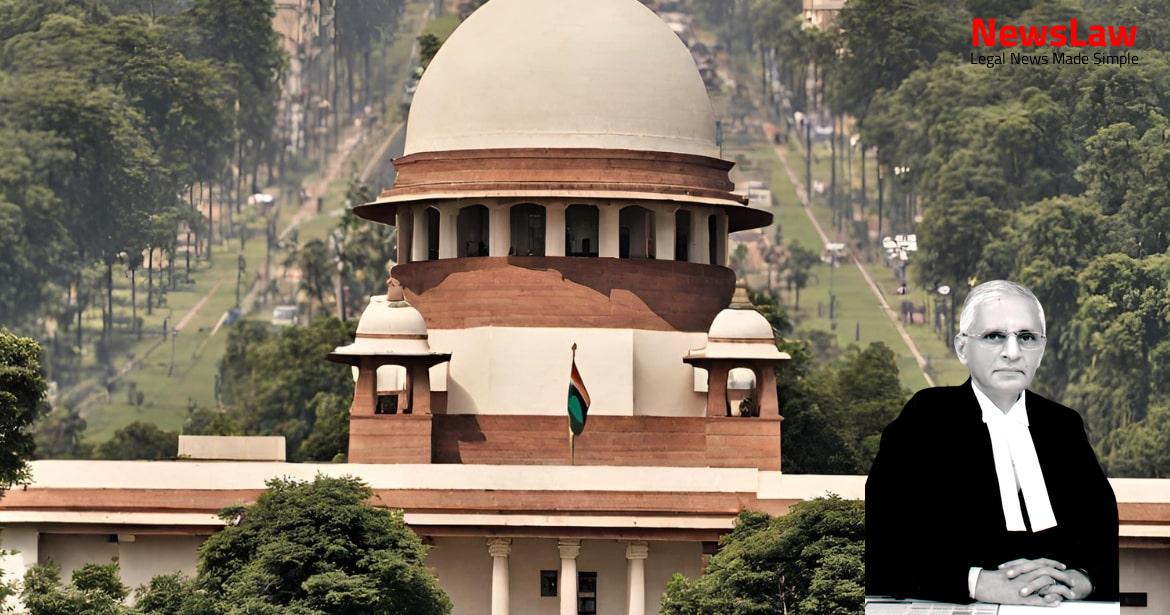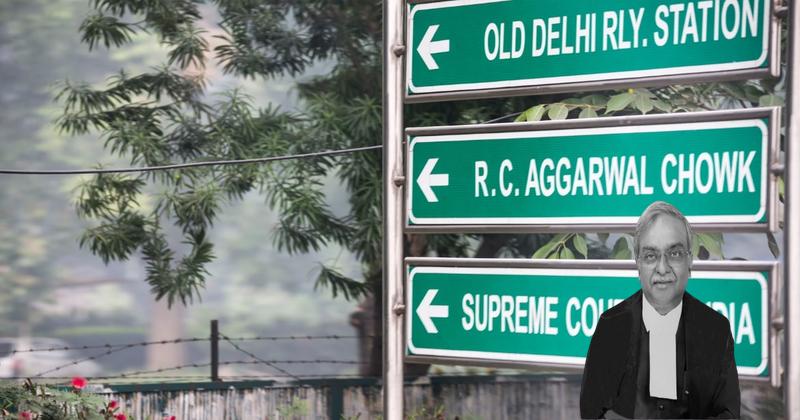The legal analysis and court judgment in a recent case emphasize the significance of adhering to recruitment rules. The court’s decision underscores the importance of timely action and vigilance on the part of candidates in recruitment processes. Find out more about the legal aspects of recruitment rules and court judgments in our detailed blog post.
Facts
- Several candidates responded to the advertisement and submitted applications.
- SMS were sent to candidates for document verification and physical fitness test.
- Respondent filed a writ petition seeking completion of the process and declaration of results.
- Respondent claimed appellants did not adhere to the rules by not issuing a call letter.
- Appellants claim that candidates were informed via SMS based on provided mobile numbers.
- Division Bench of High Court upheld the judgment of the Single Judge dismissing the Special Appeal.
- Division Bench approved the direction to grant opportunity for document verification and physical fitness test
- No other mode of information was sent to the respondent except for an SMS
- Appeal was dismissed based on equitable consideration
- Intra court appeal filed by appellants claiming grievance against the direction of the Single Judge
- Single Judge did not record a finding regarding violation or non-compliance of any rule
Also Read: Electoral Malpractices in Mayor Election
Arguments
- The petitioner’s counsel argues that the candidate’s mobile number might have changed over 3 years, making SMS communication unreliable.
- They suggest that postal intimation would have been a more secure means of communication and was not done in this case.
- Referring to a previous case where a similar claim was rejected by the court, they argue against entertaining the respondent’s belated request for an opportunity.
- The petitioner’s counsel dismisses the significance of SMS notifications for selection process updates.
- They argue that the respondent’s contention is not valid given the circumstances.
- The counsel for the respondent, however, supports the court’s decision, stating the rules required intimation through post but none was issued in this case.
- They argue against allowing individuals to repeatedly reopen the selection process at their convenience.
- The respondent’s negligence in not responding to SMS notifications and appearing for further processes should not disrupt the completed selection process.
- It is highlighted that a physical standard test was conducted in September 2018.
- The respondent argues that the appellant’s claims lack merit
- The respondent points out that the lower court’s decision was well-reasoned and supported by evidence
- The respondent emphasizes that the appellant has not provided sufficient grounds for this appeal
- The respondent seeks the dismissal of the appeal
Also Read: Balancing Power and Transparency: Electoral Bonds Struck Down, Disclosure Mandated
Analysis
- The High Court did not grant relief to the respondent due to lack of findings on non-compliance with application requirements.
- The Rule mentioned provides for intimation through postal communication or any other mode.
- The appellant followed the requirement to communicate via the mobile number provided by the respondent.
- No evidence was presented to show the respondent did not possess the mobile connection at the time of the SMS communication.
- An opportunity was granted to 151 candidates to participate in the selection process as per the notice dated 14.01.2019 issued based on High Court directions in writ petitions.
- Candidates are responsible for notifying authorities of any changes as it is in their own interest.
- The respondent, having not acted on an SMS regarding the selection process, cannot request permission to participate after the process has concluded.
- The High Court considered the respondent’s situation to be due to his casual attitude and inadvertence, providing a mild opportunity.
- A similar case where a writ petition was dismissed for not being vigilant in seeking relief was noted by another learned Single Judge and upheld by the Division Bench.
- Vigilance in timely action is required, especially if the applicant’s address for communication has changed since the application was submitted.
Also Read: Recall of Resolution Plan Approval: Legal Analysis
Decision
- The orders dated 12.03.2019 and 29.08.2019 passed by the learned Single Judge and Division Bench respectively are set aside.
- The appeal is allowed with no order as to costs.
- A line has to be drawn at some stage to avoid delays in recruitment processes.
- The recruitment process in this case started in 2015, and sufficient time has elapsed since then.
- It is not appropriate to make an exception for the respondent at this stage.
Case Title: THE STATE OF UTTAR PRADESH Vs. PANKAJ KUMAR (2021 INSC 749)
Case Number: C.A. No.-006860-006860 / 2021



